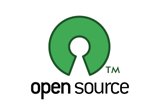Debian Linux gets HP seal of approval
HP adds the operating system to its Linux portfolio in move that reflects demand for open source software

Sign up today and you will receive a free copy of our Future Focus 2025 report - the leading guidance on AI, cybersecurity and other IT challenges as per 700+ senior executives
You are now subscribed
Your newsletter sign-up was successful
HP has announced plans to increase the number of Linux distributions for which it will provide customer support, adding Debian Linux to its existing portfolio of Red Hat, Novell/SUSE and Asianux platforms.
The move will come as a surprise to some as, although popular with enthusiasts and developers, Debian Linux has failed to capture the imagination of enterprise customers in the same way as Red Hat and Novell/SUSE distributions.
Lack of big-name support could be one reason for this reticence and by giving the platform its backing HP is clearly looking to foster interest among business buyers. Particularly those deterred from deploying Linux because of the charges levied by Red Hat and Novell for access to updates.
Red Hat customers have to take out a subscription to the Red Hat Network to obtain both updates and support. Similarly, Novell charges customers to keep both its server and desktop software up to date.
HP's support for Debian Linux will start at the end of the year, but will be limited to telephone and email enquiries with no plans, as yet, to offer factory installation or even certify Debian Linux for use on ProLiant and BladeSystem servers. Customers will also have to download the software themselves. However, unlike the Red Hat and SUSE distributions, Debian Linux updates are available free to all users..
Interestingly the latest release of Ubuntu Linux (Ubuntu 6.06 LTS), originally based on Debian Linux, also majors on enhanced commercial support, with customers similarly able to download and apply updates regardless of whether or not they have a support contract.
A more popular distribution than Debian, Ubuntu would, on the face of it, have been a more sensible choice for HP to back. However, according to Geoffrey Wade, worldwide Linux marketing manager, HP has a long history of working with and contributing to the Debian open source project and already provides specialised customer support in niche areas such as telecommunications.
Sign up today and you will receive a free copy of our Future Focus 2025 report - the leading guidance on AI, cybersecurity and other IT challenges as per 700+ senior executives
The company has also employed Debian Linux in some of its appliance products and is the first tier one vendor to use it for a thin client. In the new HP t5725 unveiled at the recent LinuxWorld conference and expo.
-
 Salesforce targets telco gains with new agentic AI tools
Salesforce targets telco gains with new agentic AI toolsNews Telecoms operators can draw on an array of pre-built agents to automate and streamline tasks
-
 Four national compute resources launched for cutting-edge science and research
Four national compute resources launched for cutting-edge science and researchNews The new national compute centers will receive a total of £76 million in funding